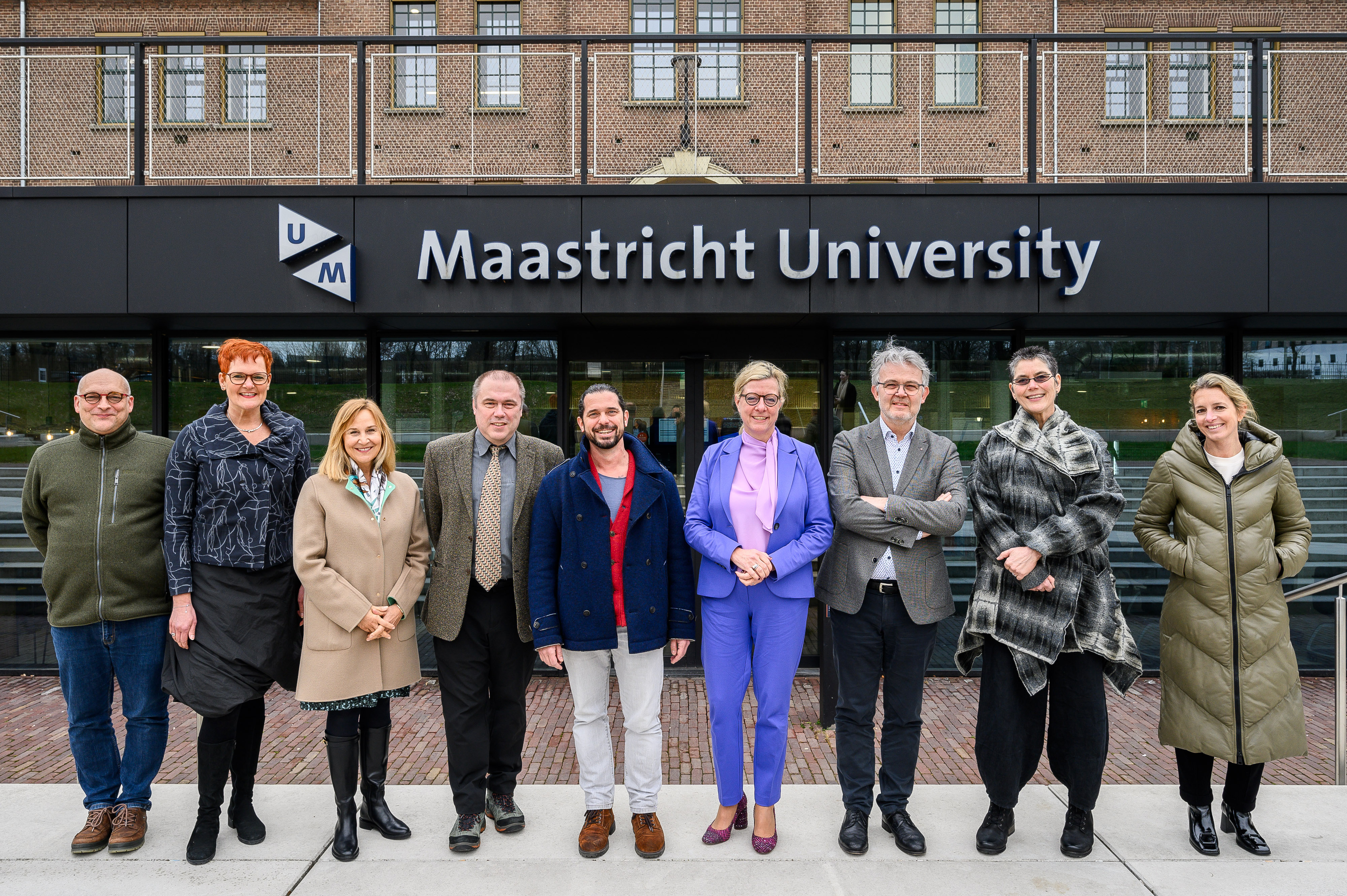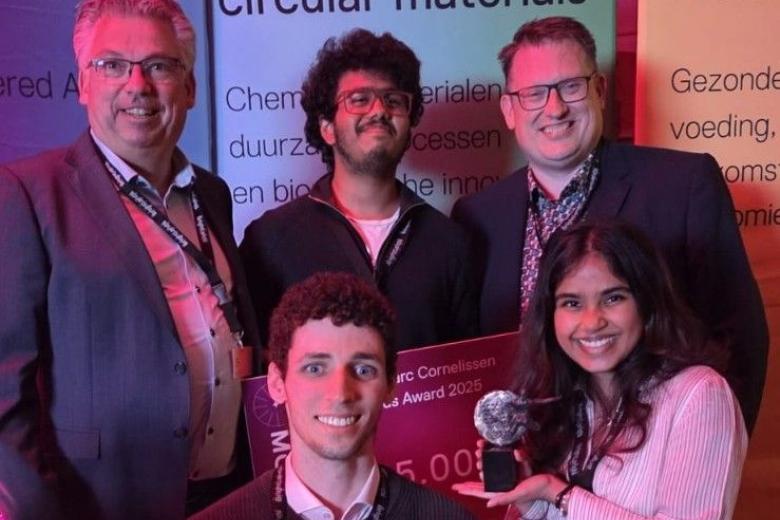Why our International Advisory Board matters
Founded 40 years ago, Maastricht University School of Business and Economics (SBE) started with only a handful of students and a motivated group of staff members experimenting with a new concept called Problem-Based Learning. Since then, the School has grown to about 6,300 students and around 700 staff members, with education and research programmes in fields ranging from sustainability to econometrics to supply chain management.
While SBE has certainly changed over the years, one thing has remained constant and that is the School’s motivation to examine and address society’s most complex challenges. To support this goal, SBE works with its International Advisory Board (IAB) who acts as a bridge between the School and industry, while providing external guidance to the School.
Following their most recent bi-annual meeting with the SBE Board, we had the opportunity to catch up with four of the current IAB members to hear their thoughts on the direction of the School.
The purpose, roles and importance of the IAB
SBE’s current International Advisory Board (IAB) is an inspiring group of executives with extensive experience within their fields of expertise, which include the tech industry, organizational development, finance and computing. Together they bring experience to the table for shaping international organisations and for navigating challenging landscapes.
The four IAB members we talked to for this article are:
- Mrs. Paulien Strijland ( Design and Technology executive)
- Mrs. Josefine van Zanten (Chief Diversity, Equity & Inclusion officer at IMD Business School)
- Mr. Serge Kummer (Plug-and-play Executive and SBE alumnus)
- Mrs. Inge Murrer (Value Stream Manager IT Platform Services APG)
With meetings twice a year, the IAB not only provides SBE with independent guidance and contributes new perspectives, its members also hold our Board accountable. These visits also help to bridge the gap between the School and industry, creating a learning environment designed to benefit students and staff alike.

An inspiring and collaborative atmosphere
All four IAB members we spoke to felt inspired by their work on the advisory board. Mrs. van Zanten shares: “It’s been an absolute pleasure to be part of this board. I learn something new every time we meet.” Mrs. Strijland: “It’s nice to feel like I can contribute to a major educational institution. It’s also very inspiring for me to hear the opinions of everyone else on the board, because it’s a diverse group.” As an SBE alumnus, Mr. Kummer adds “For me personally, I feel like this university gave me a lot, so this is a chance for me to give back.”
When asked about the dynamic when meeting with the SBE Board, Mrs. van Zanten explains, “SBE’s Dean Mariëlle Heijltjes has created a collaborative atmosphere in which we feel comfortable sharing our ideas and suggestions.” Mr. Kummer: “It feels more like a brainstorming session in which the SBE Board genuinely wants to hear our thoughts.”
Despite her extensive experience in senior leadership positions, Mrs. van Zanten shares that these meetings remain a humbling experience: “Whenever I want to bring something into the discussion, I first always ask myself if it’s valuable. I believe it’s a good exercise for everyone to continue to challenge themselves throughout their career.”
Prioritising impact, both globally and locally
The IAB members all agree that SBE’s emphasis on creating impact and addressing societal problems stands out to them. Mrs. Strijland explains “I think the focus on wanting to have societal impact and also on defining what that really means is wonderful. We desperately need this as a society. From the outside, people might have the preconceived notion that, as a school of business and economics, SBE’s focus is only on making money. But in fact, it’s much more than that.”
Mrs. van Zanten adds “We’re now asking fundamental questions. Creating new knowledge and putting this back into society is what universities should be doing. This was a big part of our conversation today.”
Mr Kummer goes on to say: “Having an impact is not only about new knowledge. There is also ‘old’ knowledge that has yet to be shared with the broader public in an effective way to have an impact on society. In other words, impact also depends on the effectiveness of knowledge transfer.”
The international DNA of Maastricht University has been the driving force behind its impact at a global level, but also at a national and regional level. For instance, Mrs. Murrer points out how important SBE’s students are for the region. As a manager at APG, she explains “For my company, there is huge interest in the university because it is a talent pool for us.”
Also read
-
Roy Broersma (CEI): Guiding Aestuarium from idea to venture
Roy Broersma, director of the Center for Entrepreneurship & Innovation (CEI) at SBE, has been closely involved in guiding Aestuarium from an early student startup to a growing venture. From spotting their potential during the Brightlands Startup Challenge supporting them through CEI.
-
Despite a less tight labour market no end to shortages in healthcare, education, and tech
Interesting new findings in the report 'The Labour Market by Education and Occupation until 2030' from the Research Centre for Education and the Labour Market (ROA) at Maastricht University.
-
Maastricht University ranked #3 worldwide and #1 in Europe in 2025 Better World MBA Ranking
We are incredibly proud to share that the MBA programmes of Maastricht University School of Business and Economics’ executive branches, MSM and UMIO, have once again been recognised among the very best sustainable business MBA programmes worldwide. In the 2025 Better World MBA Ranking by Corporate...